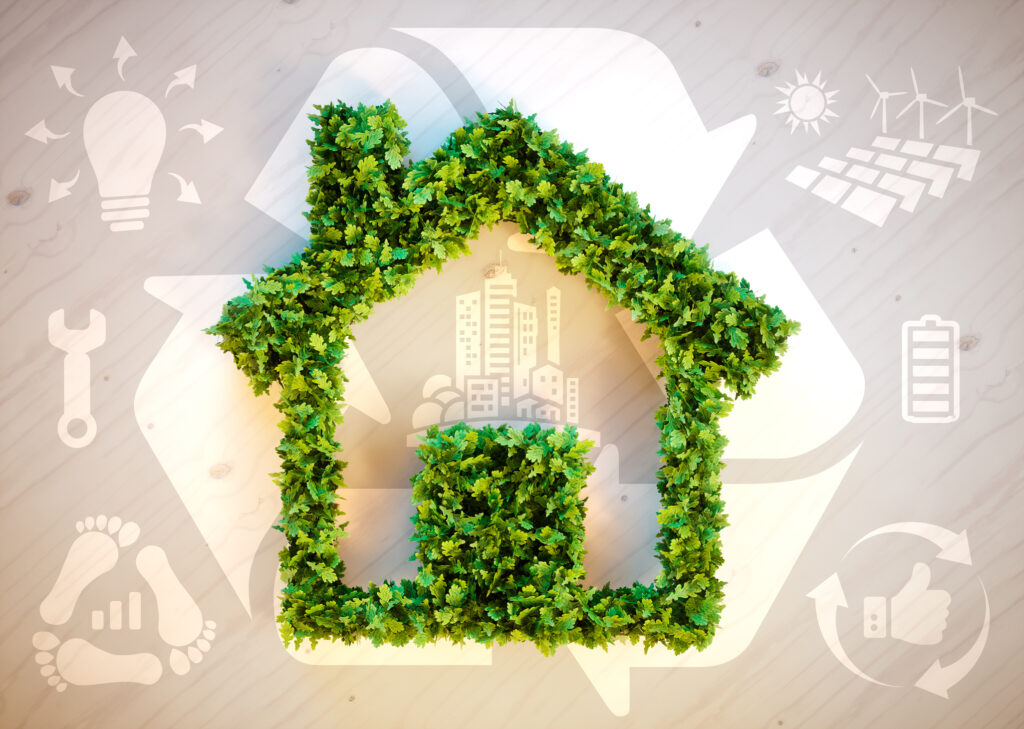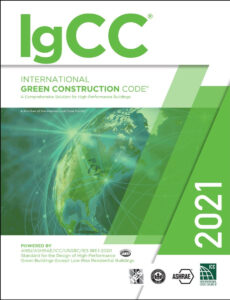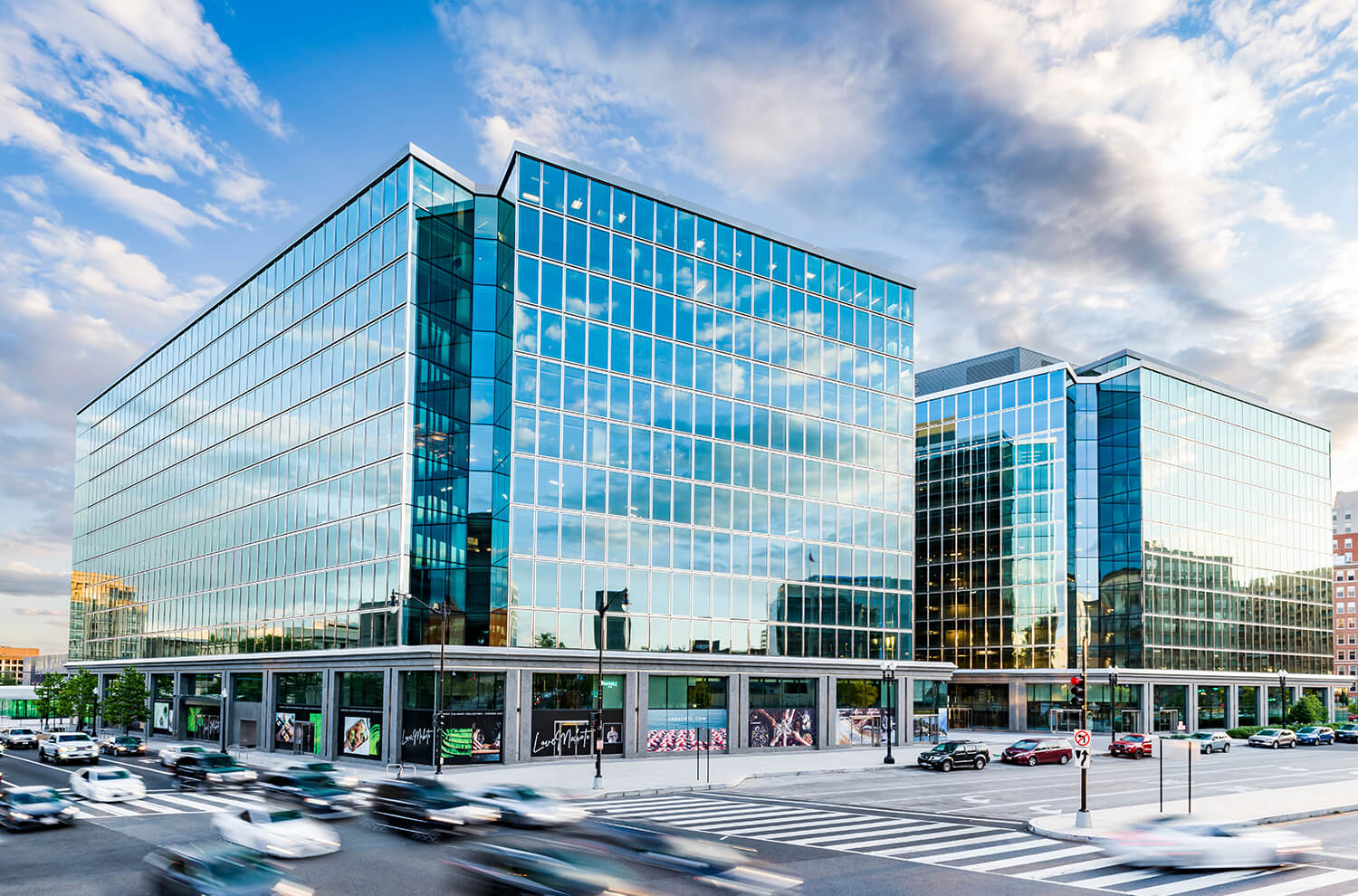
The International Code Council Celebrates Earth Day
From green construction to sustainability and resiliency, the Code Council family of solutions is part of the technological transformation to help make our buildings safer and more sustainable.
Since 1970, countries around the world have celebrated Earth Day on April 22 to spread awareness about and gain support for environmental protection.
Over the years, stakeholders within the built environment have recognized the dangers of the changing climate and have implemented initiatives and goals focused on sustainability.
The construction industry has historically been one of the largest consumers of energy and has contributed greatly to carbon dioxide emissions. According to the U.S. Green Building Council, buildings consume about 40 percent of all energy in the United States each year, including the energy utilized during construction.
In recent years, global dialogue has increased awareness of this issue and industry leaders, such as the International Code Council, have responded with action.

Incorporating Green Building Practices into Construction
From green construction to sustainability and resiliency, the Code Council family of solutions is part of the technological transformation to help make our buildings safer and more sustainable.
The International Codes® (I-Codes) are the most widely used and adopted set of building safety codes in the world. Many jurisdictions in the United States and abroad incorporate the I-Codes into their building design and compliance processes to construct safe, sustainable and affordable structures.
The International Green Construction Code® (IgCC) is a part of the Code Council’s suite of comprehensive, coordinated and sustainable-focused model codes – including the International Building Code® (IBC), International Residential Code® (IRC), International Energy Conservation Code® (IECC), International Existing Building Code® (IEBC), and International Plumbing Code® (IPC).
The IgCC provides fundamental criteria for energy efficiency, resource conservation, water safety, land use and site development, indoor environmental quality and building performance. It has wide applicability for incorporating resilient, high-performance green building design strategies into building codes to improve the standard of living for people in communities across the globe.

Adopting and implementing the IgCC can also aid occupant comfort and health, save money and preserve resources during the design, construction and operation of buildings. Many homeowners, businesses and building professionals have voluntarily sought to incorporate green and sustainable building strategies into their projects and several systems have been developed to guide green building practices.
Off-Site Construction: The Future of Green Building
The expanded use of off-site construction (often called modular or prefabrication) is one approach to help solve challenges facing the building industry, including workforce availability, housing affordability, job site safety, building quality and sustainability. Off-site construction addresses the need for more buildings while simultaneously respecting natural resources and keeping a watchful eye on environmental impacts in the future.
Today’s modular commercial and residential structures are being designed and built to be more resilient, sustainable and greener than ever before. Thanks to off-site construction taking place in a factory setting, building materials can be stored indoors, resulting in less resource loss from spoilage due to weather conditions. Materials are also used efficiently through replicable fabrication and assembly processes which vastly reduces waste. Resource and material waste can be reduced by up to 90 percent compared to standard on-site construction, resulting in less waste in landfills.
Off-site construction also provides significant climate value. A recent study out of the United Kingdom found that off-site construction projects resulted in a 45 percent reduction in carbon impacts when compared to similar site-built projects.
Modular buildings can also be moved to new locations (if building codes allow), making entire buildings reusable. If modular schools and commercial properties are built to modern and up-to-date codes and standards, they can be re-purposed for generations.
Earlier this year, the Code Council, in partnership with the Modular Building Insitute, published a new off-site construction standard that addresses mechanical, electrical and plumbing system elements used in off-site construction with respect to energy efficiency, water conservation, planning, designing, fabricating, transporting, and assembly within commercial and residential buildings. Read more on the Code Council’s multiple solutions to support the safe and efficient use of off-site construction.
Improving Water Reuse and Conservation Initiatives
The Code Council’s codes and standards have ensured safe plumbing systems in both residential and commercial buildings and addressed water-related issues for decades — its building, plumbing and green codes help protect clean water for future generations through proper construction, conservation and safe disposal.

To help solve the global water and sanitation crisis, the Code Council launched its inaugural World Water Awareness campaign in March of 2024. This groundbreaking campaign aims to raise awareness about the water crisis and our collective responsibility to address it through long-term, consistent water conservation efforts.
The Code Council’s PMG Code Action Committee’s Water Reuse Working Group was formed to address how direct on-site potable water reuse is becoming more predominant in the built environment. The working group included representation from the U.S. Environmental Protection Agency’s (EPA) Water Reuse Action Plan (WRAP) Team, National Blue-Ribbon Commission (NBRC), NSF International, engineers, design professionals, manufacturers, local/state/federal health departments, building owners, plumbing contractors and code officials.
These industry leaders compiled extensive data and conducted a comprehensive review of the water reuse requirements in the 2024 International Plumbing Code® (IPC) and 2024 International Residential Code® (IRC) to determine what updates were needed to better address on-site direct potable water reuse in the 2027 versions of the IPC and IRC. You can learn more about their research here.
Code Council HQ Moves to High-Performance Building Complex
Last year, the Code Council moved its Washington, D.C. Headquarters to Capitol Crossing, an ultra-high-performance building near Capitol Hill.

Capitol Crossing is a LEED Platinum-certified building, the highest designation by the U.S. Green Building Council (USGBC).
LEED stands for Leadership in Energy and Environmental Design. LEED is a green building rating system program, run by USGBC, that provides certification for buildings that have a reduced environmental impact and recognized sustainability leadership. A structure can earn a designation of LEED Platinum, Gold, Silver or Certified depending on a building’s sustainability goals and level of achievement.
Practicing Sustainability Beyond Earth Day
By promoting and implementing green building solutions, sharing data-driven information and engaging in sustainability best practices, the building industry can help contribute more positively this Earth Day and every day. Several members of the Code Council recently traveled to Paris for the inaugural Buildings and Climate Global Forum, hosted by the French Government and the Global Alliance for Buildings and Construction. Read more about the event here.

The Code Council’s Sustainability Membership Council (SMC) advocates for sustainability issues, green and energy code enforcement, and opportunities that are of particular interest to building officials. The SMC Governing Committee serves to actively engage Members in discussions about priorities and opportunities for the direction of the Council. A valuable way to become more engaged with the council and its sustainability goals is to become part of the SMC governing committee.
View the Code Council’s sustainability resources here.









